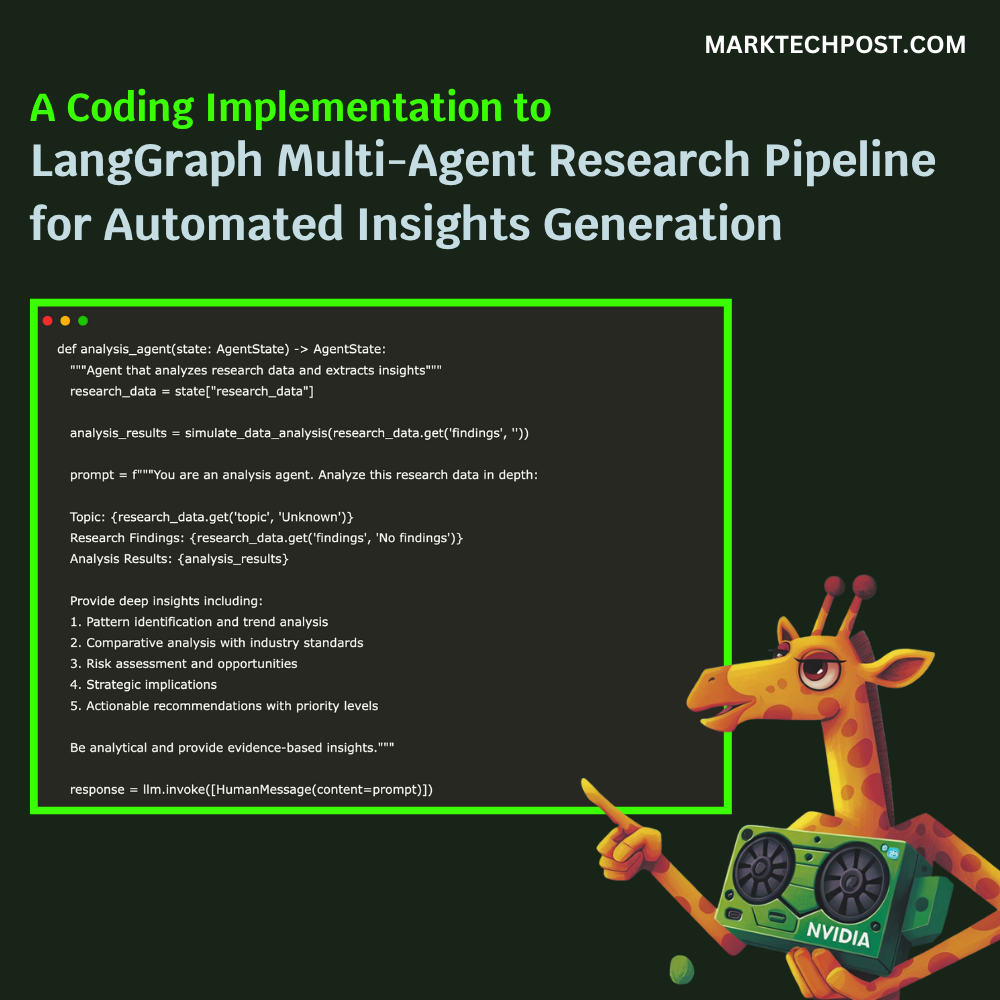
Advanced LangGraph Multi-Agent System Enhances Research Workflows
In a significant advancement for research automation, Asif Razzaq introduces an innovative LangGraph multi-agent system that utilizes Google’s free-tier Gemini model to streamline end-to-end research workflows. This development is aimed at enhancing the efficiency and effectiveness of research processes through automation.
Implementation Overview
The tutorial outlines the initial steps to set up the necessary libraries, including LangGraph, LangChain-Google-GenAI, and LangChain-Core. It provides a comprehensive guide to defining a structured state for the agents involved in the research process.
Specialized Agent Configuration
Three specialized agents are at the core of this system:
- Research Agent: This agent is responsible for gathering information and conducting web searches.
- Analysis Agent: Focused on processing and analyzing the gathered data to derive insights.
- Report Agent: Takes the output from the other agents to create a polished executive report.
Throughout the tutorial, users are guided on how to simulate web searches, perform data analysis, and manage communication between these agents to produce comprehensive reports.
Practical Application
By leveraging the capabilities of the Gemini model, the LangGraph multi-agent system exemplifies how artificial intelligence can enhance research activities, enabling professionals to generate automated insights efficiently. This system is particularly beneficial for software engineers, data scientists, and decision-makers who require rapid and reliable data analysis.
As research fields increasingly adopt such automated systems, the potential to improve productivity and decision-making processes becomes more pronounced. This tutorial serves not only as a technical guide but also as a stepping stone for those looking to integrate AI into their research methodologies.
Rocket Commentary
Asif Razzaq's introduction of the LangGraph multi-agent system marks a notable step forward in research automation, leveraging Google's Gemini model to enhance workflow efficiency. However, while the optimistic tone surrounding this innovation is warranted, we must remain vigilant about the ethical implications of automation in research. As these systems streamline processes, there is a risk of oversimplifying complex research tasks and potentially diminishing the critical thinking skills essential for rigorous inquiry. The real challenge lies in ensuring that such technologies are not only accessible but also maintain the integrity of academic standards. If implemented thoughtfully, LangGraph could revolutionize how researchers operate, but we must prioritize ethical considerations to safeguard against unintended consequences in the pursuit of efficiency.
Read the Original Article
This summary was created from the original article. Click below to read the full story from the source.
Read Original Article